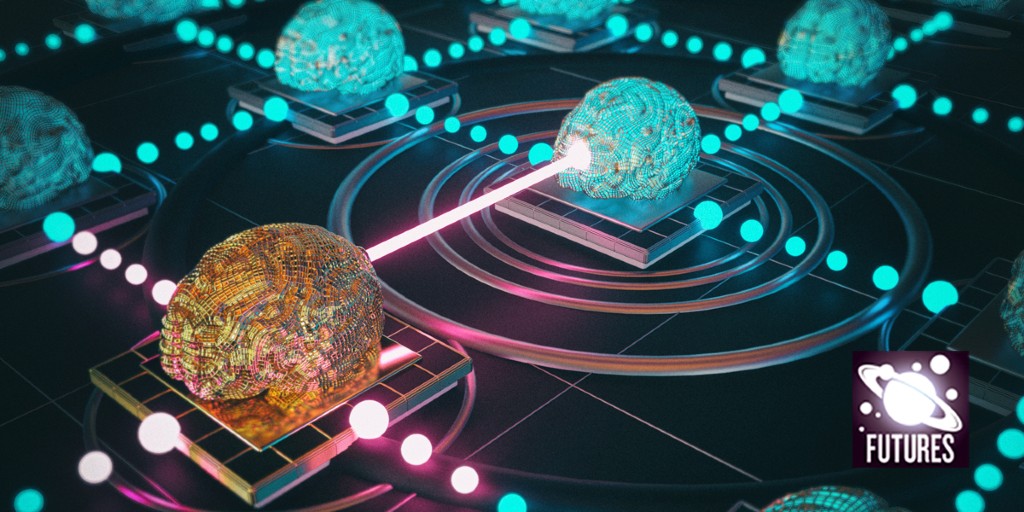Red eyes in the night. They’ve found me.
The squad moves with unnatural silence and I see the moment they spot me, four pairs of eyes aimed at a single target before three fan out to maintain a perimeter.
Three truths:
1. Their silence is as much augmentation as training.
2. Commander Salim gives orders via the network link between members, unheard by anyone outside.
3. I have been disconnected from the network.
Jenkins gets to me first. He drops to his knees and I see the light behind his eyes shift from red to yellow as he switches from infrared to night vision. “Easy, Cam. We’ve got you.”
I bite back a scream as he eases me out of the mud. Everything hurts and I think my arm’s broken. There’s a gentle nudge in the back of my mind, the handshake for rejoining the network as Jenkins tries to reconnect me. It’s like an itch I can’t scratch but after three failed attempts to connect he gives up.
Three truths:
1. I’ve been lying in the mud for almost 12 hours, waiting to be recovered.
2. The rebels smashed the transponder embedded in my right shoulder and I think they cracked a bone doing it.
3. Without my transponder there’s a chance I wouldn’t have been found at all.
My night vision still works and paints Jenkins a pale splotch against the sickly green night. His expression is distracted as he divides his attention, probably between the diagnostic and communicating with the squad. We spent endless hours in training learning how to maintain a dissonant state in order to multitask: singing in a foreign language while writing up mission notes, holding a conversation while plotting a route, reciting poetry while resisting interrogation. Jenkins could never hold more than two strands of thought at once. It left him an open book to the rest of us but he didn’t seem to mind.
“The damned Luddites beat Cam pretty badly,” he tells Salim quickly, speaking instead of sending the data for my benefit. “His arm’s broken, and there’s extensive bruising and damage to several augmentations. Must be why his router’s throwing up an error. He’s suffering from exposure and dehydration but he’ll be OK with treatment.”
“Let’s get him back to the transport,” Salim replies. The others draw back to our position and there’s an empty pause where Salim’s orders should be that makes me ache.
Jenkins splints my broken arm and they load me onto a stretcher with swift and almost painless efficiency. Two carry me and two scout, ahead and behind, to make sure no one’s waiting in ambush or trying to follow. I watch the stars.
In the transport, Jenkins sits with me and sets up a drip. He cleans and bandages wounds, although the chance to avoid infection’s long since passed. Once he’s taken care of flesh he turns his attention to my augmentations.
“That’s a hell of a bruise on your back,” he tells me. “Looks like a pretty precise strike — they must have known exactly where to hit to take out your transponder.”
“They did.”
Some augmentations are so embedded they’d have had to rip me apart to get to them. Jenkins declares those undamaged. Others, like the transponder, were broken through judicious application of force.
Three truths:
1. The rebels have known for a long time they can’t defeat us in a straight-up fight. That’s why they use guerrilla tactics.
2. Some of the rebels know how to damage us because they used to be us, before they started wondering how much of their humanity they’d traded away for tech.
3. It’s hard to fight against people when you used to be on the same side.
“What the heck is this in your data port?” Jenkins asks, inspecting the port at the base of my skull.
“Chewing gum.” Jamming up data ports is a favourite trick among the rebels, because you can’t take them out without killing us. Not without major surgery, anyway. Their propaganda’s always been very clear that their issue’s with the tech, not with us.
Jenkins makes a noise of disgust and I feel a gentle tugging as he tries to tease it out. “At least it isn’t superglue. We’d have had to replace the whole port.”
“Superglue’s hard to come by out here. Everyone’s got gum.”
The gum comes free and there’s the chemical stink of solvent as he cracks open a bottle and gets to work cleaning residue out of the port.
“I’m going to hook up to you manually, run a full diagnostic. Might take a while so try to get some sleep.” There’s a familiar feeling of completion as he inserts one end of a cable, and I welcome the connection past my firewall.
Three truths:
1. A wired connection is faster and more reliable than wireless.
2. Jenkins is concentrating on treating me and updating the log, and has never been good at running multiple processes.
3. I override his security settings before he realizes I’ve done it. The virus takes hold.
One down. I rejoin the network.






More News
Author Correction: Bitter taste receptor activation by cholesterol and an intracellular tastant – Nature
Audio long read: How does ChatGPT ‘think’? Psychology and neuroscience crack open AI large language models
Ozempic keeps wowing: trial data show benefits for kidney disease